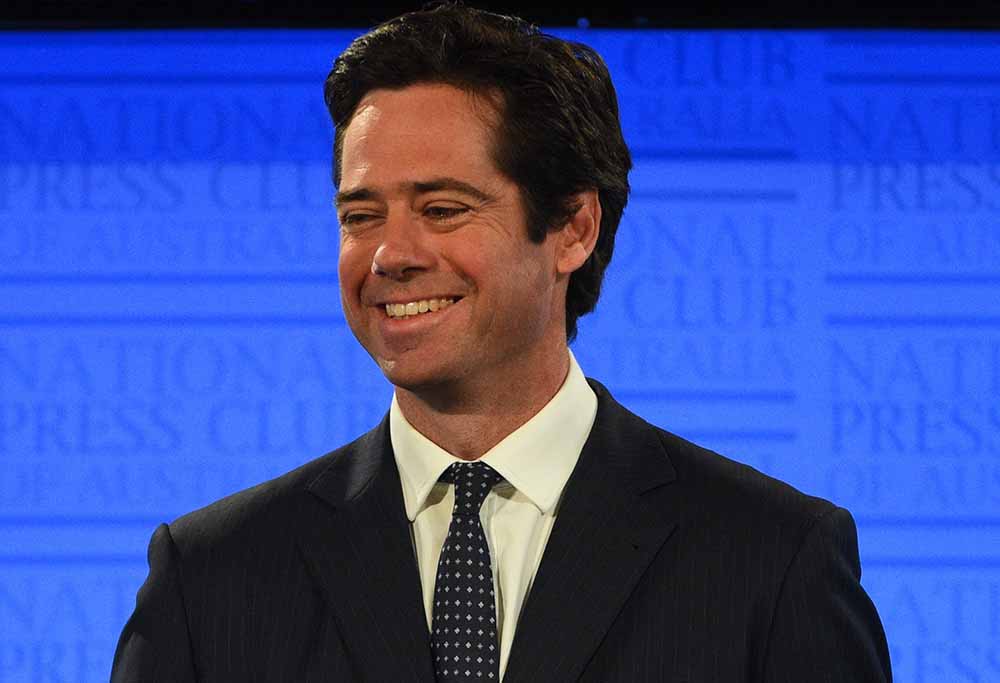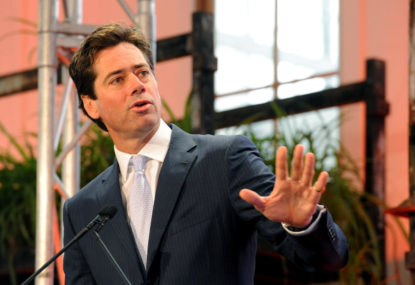A wildcard weekend in the AFL? Sure, why not? It’s a great idea!
After all, the season is already set up so that after playing 22 rounds, the team with the eighth-best performance is given a chance at the premiership – why not extend that to the tenth-best?
Nothing could enrich the competition more than allowing teams that aren’t even in the top half of the ladder contend for the flag.
Unless that is, it’s the idea that the wildcard round could feature the eighteen teams split into three pools, with the winner of the bottom pool given a chance at a wildcard finals entry.
That would mean you could get the thirteenth-best team playing in the finals, and I don’t think any true footy-lover could begrudge that finals spot to a team that has toiled hard all year to finish a whole five places above the wooden spooners.
The great thing about all these proposals for fixture revamps is that they achieve such a wonderful balance between absolute scrupulous fairness, and responsiveness to the huge groundswell of support for fixture alterations.
The AFL does, after all, have a responsibility to its fans, and if those fans keep marching in the streets demanding the finals system be drastically changed, what other option do they have?

(AAP Image/Mick Tsikas)
My only worry is that maybe the AFL is being too conservative in its ideas for spicing up the season. Surely Gillon MacLachlan is willing to think outside the box and consider some more innovative proposals. Such as:
The Reverse Finals
Finals are too predictable when they feature the best versus the best. In this formula, the team at the bottom of the ladder at the end of the home and away season is given an automatic berth in the grand final, while the team that finishes first is expelled from the competition permanently. It gives an added frisson to traditional end-of-season tanking efforts.
The Endless Finals
It’s pretty obvious that the finals are the most exciting time of year for fans, so why restrict them to one month a year?
In this system, the home and away standings are determined by coin toss, then we play elimination finals for two months, preliminary finals for two months, and then five whole months of the grand final played every weekend.
The Susquehanna Crosshatch Sideslip
Under this system, at the end of the home and away season, all teams are sorted into nine pools based on a weighted average of their scoring percentage combined with goalkicking accuracy.
These pools then play each other, then the winners play the losers of every other pool and the losers play the winners. In the event of a tie, the tying teams have a bye which must be spent in Arizona.
After these rounds, the team on top of the standings is given a spot in the grand final if they want it, but they have to play with only seventeen players.
Or they can choose “what’s in the box”, which could be a preliminary final against the wooden spooners, or a drugs scandal.
Teams 2-7 play off to decide who has the best seats in the grand final replay, which occurs one week after the grand final, whatever the result.
Teams 8-11 are designated “jokers”, and may run on to the field at any time during the grand final as a general disruption.
Teams 12-18 must swap their biggest and smallest players for each other and then play an entire full-length season amongst themselves.
Meanwhile, the minor premier and the team that finished fourth play the grand final except in a leap year, which means it’s team 2 versus team 6.
Any set shot that hits the post in a grand final wins a car. The premier is whichever team raises the most money for charity.
The Violent Finals
The finals are played as usual, but there are no restrictions on foul play and you get three points for drawing blood.
Super-Season
In order that the inequities of the home and away season are removed, every team now plays every other team three times, making the home and away season fifty-one weeks long. The players still standing then form two teams and have a kick around at a local park on the other weekend.
Super-Season Mk II
In order that the inequities of the home and away season are intensified, Collingwood, Carlton, Essendon and Richmond rotate through each other every week, West Coast and Fremantle play every game in Launceston, Brisbane isn’t told where it’s playing till 11am on the morning of the game, and Hawthorn gets to take any Bulldogs player it feels like for free.
At the end of the season is the grand final pre-game entertainment, after which everyone goes home.
The Finals-Tacular Entertainment Extravangazathon
Under this system, the finals format stays the same, but every finals match is three times as long, to triple the entertainment for fans. The grand final takes place over three days, with the middle day consisting of the national draft being conducted in the middle of the MCG.
Now that would be finals footy!






























































































